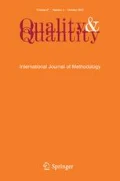Abstract
This qualitative study investigates and reveals the difficulties experienced by a dyslexic 7 year-old child learning English as a foreign language in a state elementary school. Aiming to advance the understanding of challenges dyslexics experience in English as a foreign language classes, a qualitative case study was designed. Thematic analysis of the interview data revealed that a dyslexic child struggles with linguistic difficulties, such as pronunciation, spelling, reading and writing. In addition, short and long term memory are impaired, which causes problems concerning word finding, memorization and naming objects. Contrary to the findings of most research, the participant of this study was found to be highly motivated towards learning English and that she had positive affectivity due to her personality. This study is expected to contribute to the teaching of English language to elementary school children with dyslexia and serve as a means to increase service quality of foreign language classes offered for dyslexic children.
Similar content being viewed by others
References
Bonifacci, P., Canducci, E., Gravagna, G., Palladino, P.: English as a foreign language in bilingual language-minority children, children with dyslexia and monolingual typical readers. Dyslexia 23, 181–206 (2017)
Braun, V., Clarke, V.: Using thematic analysis in psychology. Qual. Res. Psychol. 3, 77–101 (2006)
Caravolas, M., Lervåg, A., Defior, S., Seidlová Málková, G., Hulme, C.: Different patterns, but equivalent predictors, of growth in reading in consistent and inconsistent orthographies. Psychol. Sci. 24, 1398–1407 (2013)
Castles, A., Friedmann, N.: Developmental dyslexia and the phonological deficit hypothesis. Mind Lang. 29, 270–285 (2014)
Chung, K.K.H., Ho, C.S.H.: Dyslexia in Chinese language: an overview of research and practice. Aust. J. Learn. Disabil. 15, 213–224 (2010)
Crombie, M.: Bad language or good? Modern foreign language learning for the dyslexic pupil. In: Smythe, I. (ed.) The dyslexia handbook. British Dyslexia Association, Reading (1999)
Csize´r, K., Kormos, J., Sarkadi, A.: The dynamics of language learning attitudes and motivation: lessons from an interview study of dyslexic language learners. Mod. Lang. J. 94, 470–487 (2010)
Downey, D.M., Snyder, L.E., Hill, B.: College students with dyslexia: persistent linguistic deficits and foreign language learning. Dyslexia 6, 101–111 (2000)
Fischbach, A., Könen, T., Rietz, C.S., Hasselhorn, M.: What is not working in working memory of children with literacy disorders? Evidence from a three-year longitudinal study. Read. Writ. 27, 267–286 (2014)
Helland, T., Kaasa, R.: Dyslexia in English as a second language. Dyslexia 11, 41–60 (2005)
Knudsen, I.: Dyslexia and foreign language learning. Master. Engelska and lärande (2012)
Macdonald, S.J.: Towards a social reality of dyslexia. Br. J. Learn. Disabil. 38, 271–279 (2009)
McNamara, J.K., Wong, B.: Memory for everyday information in students with learning disabilities. J. Learn. Disabil. 36, 394–406 (2003)
Schneider, E.: Dyslexia and foreign language learning. The Routledge Companion to Dyslexia. Routledge, New York (2009)
Simon, C.: Dyslexia and learning a foreign language: a personal experience. Ann. Dyslexia 50, 155–187 (2000)
Snowling, M.: Dyslexia. Blackwells, London (2000)
Soroli, E., Szenkovits, G., Ramus, F.: Exploring dyslexics’ phonological deficit III: foreign speech perception and production. Dyslexia 16, 318–340 (2010)
Sparks, R.L., Ganschow, L., Patton, J.: L1 and L2 literacy, L1 and L2 aptitude, and L2 affective variables as discriminators among high- and low-achieving, LD, and ADHD L2 learners. In: Kormos, J., Kontra, E.H. (eds.) Language learners withspecial needs: an international perspective, pp. 11–35. Multilingual Matters, Clevedon (2008)
Palladino, P., Bellagamba, I., Ferrari, M., Cornoldi, C.: Italian children with dyslexia are also poor in reading English words, but accurate in reading English pseudowords. Dyslexia 19, 165–177 (2013)
Palladino, P., Cismondo, D., Bellagamba, I., Ferrari, M., Cornoldi, C.: L2 spelling errors in Italian children with dyslexia. Dyslexia 22, 158–172 (2016)
Tunmer, W.E., Chapman, J.W.: Language-related difficulties between discrepancy-defined and non-discrepancy-defined learning difficulties: a longitudinal study of dyslexia in New Zealand. Dyslexia 13, 42–66 (2007)
Willcutt, E., Gaffney-Brown, R.: Etiology of dyslexia. ADHD and related difficulties. Perspectives 30, 12–15 (2004)
Author information
Authors and Affiliations
Corresponding author
Rights and permissions
About this article
Cite this article
Dimililer, C., Istek, E. Experiences of a dyslexic child in an English as a foreign language class. Qual Quant 52 (Suppl 2), 1391–1398 (2018). https://doi.org/10.1007/s11135-018-0730-9
Published:
Issue Date:
DOI: https://doi.org/10.1007/s11135-018-0730-9




